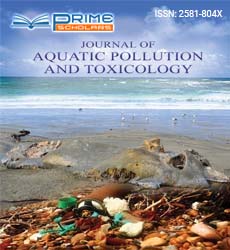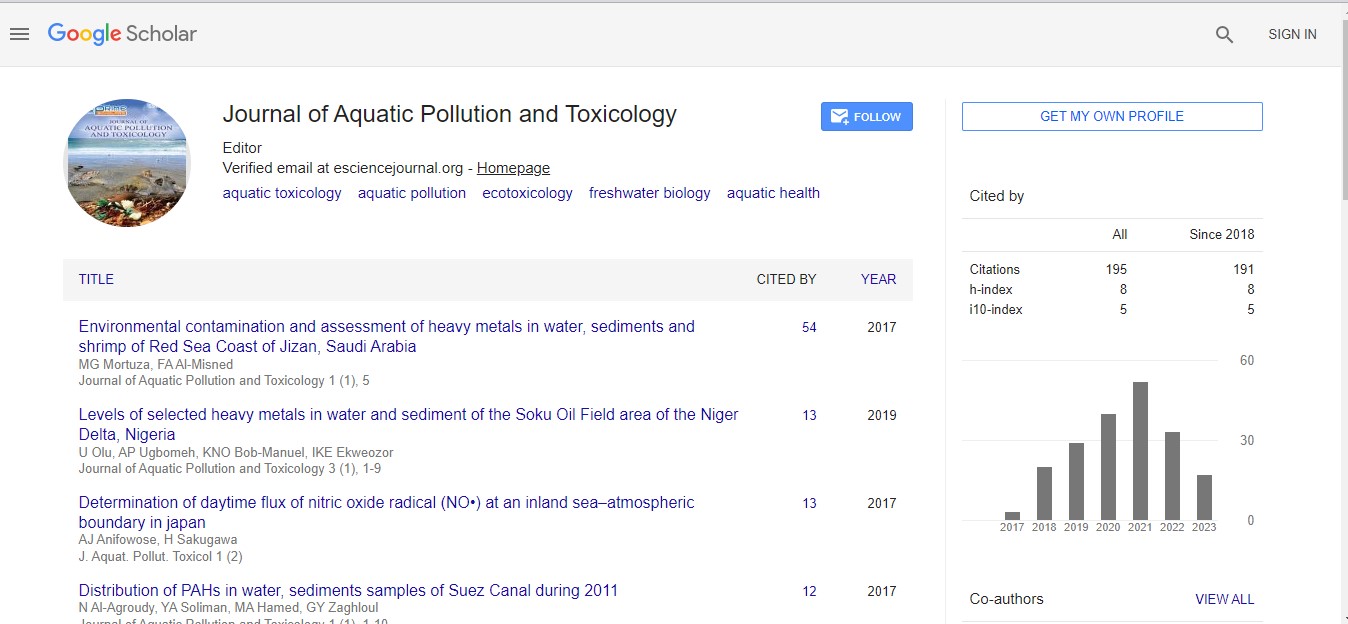Commentary - (2024) Volume 8, Issue 3
Exploring Freshwater Biology: Understanding Life in Freshwater Ecosystems
Bin Chen*
Department of Aquatic Science, East China Normal University, China
*Correspondence:
Bin Chen,
Department of Aquatic Science, East China Normal University,
China,
Email:
Received: 02-Sep-2024, Manuscript No. IPJAPT-24-21321;
Editor assigned: 04-Sep-2024, Pre QC No. IPJAPT-24-21321 (PQ);
Reviewed: 18-Sep-2024, QC No. IPJAPT-24-21321;
Revised: 23-Sep-2024, Manuscript No. IPJAPT-24-21321 (R);
Published:
30-Sep-2024, DOI: 10.21767/2581-804X-8.3.24
Description
Freshwater biology studies aquatic ecosystems, focusing on
water-dwelling organisms. Freshwater biology is a vital field
of study within ecology that focuses on the organisms and
ecosystems found in freshwater environments, including rivers,
lakes, streams, and wetlands. This branch of science examines
the interactions between aquatic life and their environments,
contributing to our understanding of biodiversity, ecosystem
health, and the impact of human activities on these crucial
habitats. This article delves into the importance of freshwater
biology, key concepts, challenges, and advancements in the
field. Freshwater ecosystems are among the most diverse and
productive environments on Earth. These ecosystems are also
critical for human populations, offering resources for drinking
water, agriculture, and recreation. The health of freshwater
ecosystems is directly linked to their biological diversity. Each
species, whether it’s a fish, insect, or aquatic plant, plays a
role in maintaining the balance of the ecosystem. Freshwater
ecosystems are home to an incredible variety of life forms.
This biodiversity is crucial for ecosystem resilience, as diverse
communities are better equipped to withstand changes and
disturbances. Researchers study species diversity, distribution,
and population dynamics to assess ecosystem health and
identify potential threats. Trophic dynamics refer to the flow
of energy and nutrients through an ecosystem. In freshwater
systems, this involves complex food webs where energy is
transferred from primary producers (such as algae and aquatic
plants) to herbivores and then to predators. Understanding
these interactions helps scientists gauge the impacts of
changes in one part of the system on the rest of the ecosystem.
The quality of freshwater is fundamental to the health of
aquatic life. Parameters such as temperature, pH, dissolved
oxygen, and nutrient levels influence the survival and growth
of organisms. Monitoring these parameters helps identify
pollution sources and assess the impact of human activities on
freshwater systems. Pollutants from agriculture (like fertilizers
and pesticides), industry (such as heavy metals and chemicals),
and urban areas (including sewage and plastic waste) can
degrade water quality and harm aquatic life. Eutrophication,
caused by excessive nutrients, leads to harmful algal blooms
and oxygen depletion, which can result in fish kills and loss
of biodiversity. Human activities such as dam construction,
land development, and deforestation can lead to habitat loss
and fragmentation. These changes disrupt the natural flow of
water and alter the physical and chemical properties of aquatic
environments, negatively impacting the species that depend on
them. Climate change affects freshwater ecosystems through
altered precipitation patterns, increased temperatures, and
more frequent extreme weather events. These changes can
impact water availability, disrupt seasonal cycles, and alter
species distributions. These technologies help scientists track
changes in real time and identify emerging threats. Efforts to
restore degraded freshwater ecosystems include rewilding
rivers, replanting riparian vegetation, and removing invasive
species. These projects aim to rehabilitate habitats, improve
water quality, and enhance ecological resilience. Implementing
sustainable practices in agriculture, industry, and urban
planning can reduce the impact on freshwater ecosystems.
For example, adopting best management practices for nutrient
use and implementing green infrastructure solutions can
mitigate pollution and habitat loss. Freshwater biology is a
dynamic and crucial field that enhances our understanding of
life in freshwater ecosystems and informs strategies for their
conservation and management.
Acknowledgement
None.
Conflict Of Interest
None.
Citation: Chen B (2024) Exploring Freshwater Biology: Understanding Life in Freshwater Ecosystems. J Aquat Pollut Toxicol. 8:24.
Copyright: © 2024 Chen B. This is an open-access article distributed under the terms of the Creative Commons Attribution License, which permits unrestricted use, distribution, and reproduction in any medium, provided the original author and source are credited.

